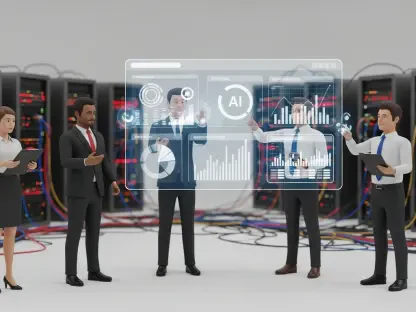The increasing intelligence of hotels driven by advanced technologies such as artificial intelligence (AI), cloud software, and smart devices is transforming the hospitality industry. These innovations enable benefits like contactless check-ins, personalized guest experiences, and enhanced operational efficiency, significantly boosting guest satisfaction. However, the rapid pace of technological advancements often surpasses the capability of many hotels to integrate and utilize them effectively. This challenge necessitates a deeper examination of how AI and data connectivity can be harnessed to their full potential to stay competitive in the market.
The Need for Seamless Integration
To boost guest loyalty, a crucial revenue driver, hotels require seamless and swift access to real-time data such as guest preferences and booking details. Despite this necessity, many hotels struggle with disjointed systems that hinder efficient data utilization. Real-time data streaming via APIs is recognized as essential by hotel leaders, although implementing these solutions proves challenging. Consequently, the onus falls on hotel tech companies to develop tools that facilitate easy and immediate data integration.
Cloud-based solutions have gained popularity, yet merging data from disparate systems remains a painstaking process. Hotel chains undergoing ownership changes face additional complexities when connecting various systems without thorough planning. The key to smooth operation lies in having interconnected systems capable of automating backend tasks, sharing guest preferences with staff, and enabling hotels to scale without costly upgrades. Effective interconnectivity is crucial for managing significant data such as reservations, guest profiles, group bookings, and financial transactions. Efficient data sharing can result in personalized guest experiences, like offering a favorite drink upon arrival or suggesting activities based on past stays.
Harnessing AI for Enhanced Personalization
AI holds significant potential for further personalizing guest stays by predicting their needs in advance. Unfortunately, fragmented data across numerous systems often hinders AI’s efficacy, making it difficult to deliver its full capabilities. There is enormous potential for AI to suggest preordering food or recommending local activities, ultimately elevating guest experiences and assisting staff in real-time. The more integrated the data, the more robust AI’s ability to offer tailored experiences that anticipate and meet individual guest needs.
Hotel brands hold a strategic advantage over Online Travel Agencies (OTAs) by offering unique, personalized experiences—a feat often achieved through effective data connectivity. Seamlessly integrating their systems allows hotels to tailor marketing campaigns, create personalized offers, and make informed decisions more swiftly. By utilizing data efficiently, hotels can significantly enhance guest satisfaction, boost profits, and streamline operations for staff. Moreover, leveraging AI-driven insights can transform the mundane aspects of a guest’s stay into memorable, personalized experiences that encourage return visits and brand loyalty.
Strategic Benefits of Data Connectivity
For hotels to distinguish themselves in an increasingly competitive market, the integration and effective use of real-time data through interconnected systems are paramount. This approach facilitates personalized guest experiences and improves both operational efficiency and revenue. The strategic benefits of data connectivity extend beyond just guest satisfaction; they also encompass operational scalability and cost-effectiveness. Automated backend operations reduce the workload on staff, allowing them to focus more on customer service, thereby enhancing the overall guest experience.
Efficient data-sharing practices enable hotels to maintain a consistent level of service, regardless of size or location. Whether managing boutique properties or expansive chains, the ability to draw from a well-integrated data pool ensures that guests receive a uniformly high standard of service. Personalized marketing, conversational AI-based customer service, and real-time adaptability to guest preferences can transform the hospitality landscape, making it more responsive to individual needs and preferences. By prioritizing effective data integration and AI applications, hotels can create a competitive edge that sets them apart in an ever-evolving market.
Conclusion: Actionable Insights for Future Success
The hospitality industry is undergoing significant transformation due to the increasing intelligence of hotels driven by advanced technologies like artificial intelligence (AI), cloud software, and smart devices. These innovations enable numerous benefits, such as contactless check-ins, personalized guest experiences, and improved operational efficiency. As a result, guest satisfaction has seen a substantial boost. However, the rapid pace of these technological advancements often outstrips the ability of many hotels to integrate and utilize them effectively. This presents a challenge that requires a thorough examination of how AI and data connectivity can be maximized to maintain competitiveness. Developing strategies for seamless integration of technology in hospitality operations is vital. Adapting to rapid technological changes while maintaining high service quality can differentiate hotels in a competitive market. Therefore, understanding and leveraging advanced tech becomes essential for hotels aiming to provide superior guest experiences and operational excellence.









